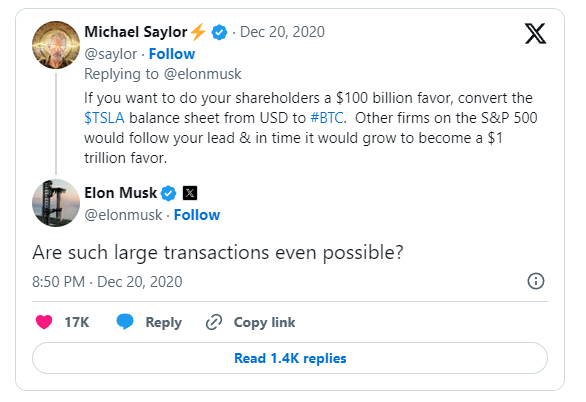OTC trading provides a discreet and secure alternative for high-volume crypto transactions. They bypass the limitations and risks associated with centralized exchanges by connecting buyers and sellers directly. OTC desks also help avoid price slippage, restrictive trading limits, and exposure to cyber risks. This guide breaks down the mechanics of OTC crypto trading, where it’s conducted, and how it benefits investors.
KEY TAKEAWAYS
➤ OTC crypto trading allows high-volume traders to bypass institutional fees and avoid exchange-imposed trading limits.
➤ OTC trading offers better privacy, higher security, and personalized broker services for high-volume transactions.
➤ High-net-worth individuals prefer OTC crypto trading for securing large transactions without affecting market prices.
➤ Disadvantages of OTC trading include higher fees, lack of automation, limited access, and potential counterparty risks.
What is OTC crypto trading?
Before blockchain and cryptocurrencies, OTC trading was an integral part of unofficial trading, unmediated by large institutions.
By trading directly between each other, OTC traders avoided costly fees and institutional supervision. Such trading is not limited in its scope, encompassing all the staple assets: stocks, derivatives, and commodities.
Given that OTC trading avoids mediation and supervision, OTC crypto trading is naturally suited for it.
Harnessing decentralized blockchain technology and trading in digital assets, OTC crypto trading is the preferred way of doing business as it resolves three critical problems for skilled cryptocurrency traders:
- Slippage: Because of the differential between the time of the order and the time of the settlement, a different price often occurs from the initial one. This impacts forex and stocks as well as cryptocurrency markets.
- Cybersecurity risk: Cryptocurrency exchanges hold all the private keys of the funds, making them highly attractive targets for cybercriminals. True ownership of crypto assets is only possible when no one else but the trader has the private key.
- Higher trading limits: It is common for crypto exchanges to impose daily trading limits to maintain asset liquidity. Transaction methods further pose trading limitations, which are inadequate for high-volume traders.
The above reasons explain why high-volume cryptocurrency traders opt for OTC crypto trading. Such trades are favored by high-net-worth investors, hedge fund managers, and private wealth managers.
Where is OTC crypto trading conducted?
The lack of institutional supervision of centralized exchanges doesn’t imply zero mediation for OTC crypto trading.
Brokerages that specialize in high-volume trades have become the most popular crypto OTC platforms. Instead of being automated, such brokerages offer professional and personalized services for executing large block trades.
Here are the most popular OTC brokers, often as an extension of regular crypto exchanges:
- itBit (rebranded as Paxos in 2016)
- Kraken OTC Desk
- HiveEx
- Jump Trading (a standalone brokerage with its own communication protocol)
- BitStocks (exceedingly easy to trade in BTC with its Gravity app)
Likewise, Huobi, Coinbase, Bithumb, and other crypto exchanges have their own OTC desks reserved for high-volume clients.
However, the minimum investment price is often between $175,000–$250,000. Only on smaller exchanges with OTC desks, such as Changelly, would you get a minimum threshold of about $90,000.
Taking advantage of Bitcoin ATMs is the simplest way to conduct an OTC trade, although they are limited in how much assets can be exchanged at once.
Pros and cons of OTC crypto trading
To help you decide if BTC OTC trading is right for you, here is a brief overview of the benefits and flaws of exchanges and OTC channels.
| OTC pros | OTC cons |
|---|---|
| Offers high security for large investors trading high volumes | Trades cannot be automated and require manual intervention |
| Helps avoid price slippage, often providing better trade prices | Fees are typically higher compared to centralized exchanges |
| Provides personalized broker services for VIP relationships | Limited access to institutional investors and those trading large volumes |
| Enables faster settlement times, granting quick access to acquired funds | Success depends on brokers’ ability to vet counter-trading parties and handle transactions securely |
| Enhances privacy and anonymity for large transactions | Not ideal for active traders looking to capitalize on fast price movements |
| Facilitates efficient cash-out for ICOs, providing an easy way to liquidate raised funds |
How do OTC transactions work?
OTC crypto transactions occur mostly through brokerages or OTC desks. This service also goes by the name principal desk, derived from “principal risk.”
Let’s say you are an investor with deep pockets looking to buy large amounts of BTC, just as Elon Musk asked Michael Saylor of MicroStrategy.

Following that tweet, Saylor bought over 90,000 BTC, and Musk has bought $1.5 billion worth of BTC. In the initial Bitcoin buying spree, Saylor revealed that much of the BTC had been bought through off-chain transactions.
However, this doesn’t mean that this represents a standardized procedure for buying cryptocurrencies in large volumes. Instead, a principal OTC desk takes care of the details and takes all the risks. The investor would only have to accept the price being offered.
The procedure
Here’s how a typical OTC crypto transaction works:
- The investor initiates contact with an OTC desk, stating their intention to buy a certain amount of cryptocurrency (e.g., 1,000 BTC).
- The OTC broker provides a price quote based on current market conditions.
- The investor decides whether to accept or decline the price quote.
- If accepted, the OTC broker secures the assets by taking on the risk of market fluctuations while finalizing the purchase.
- The investor transfers the required funds according to the broker’s instructions.
- Once the broker confirms receipt of funds, the assets are transferred to the investor.
This process may differ slightly if the broker uses an agency desk model, in which case the broker doesn’t assume the risk. Instead, the investor must cover a fixed mediation fee and bear the risk of price changes until the transaction is completed.

How to assess OTC brokers?
It’s important to carefully vet brokers while doing OTC crypto trading. Here are a few key factors to consider:
- Reputation: Look for reviews, client testimonials, and references in trusted forums. A reliable broker will have a solid track record.
- Transaction fees: Check the fee structure and compare it with other brokers to ensure transparency and fairness.
- Security measures: Verify that the broker has strong security protocols in place. Some may offer crypto custody services to protect assets.
- Customer support: Ensure that the broker offers responsive and accessible support, especially when dealing with large sums of money.
- Convenience: Evaluate how easy it is to use their platform, app, or trading interface. A seamless process is crucial for large, time-sensitive transactions.
OTC desks without custodial services may expose clients to risks during the transfer of funds. Some large asset managers, like Fidelity, now offer cold storage services for OTC traders, adding an extra layer of security.
The bottom line on OTC trading
OTC trading offers a valuable solution for high-volume crypto investors who prefer privacy, security, and flexibility. It allows traders to bypass the limitations of centralized exchanges and execute large transactions without affecting market prices. While OTC trading provides benefits such as avoiding slippage and offering personalized services, it also comes with higher fees and potential counterparty risks. So, to cut a long story short, OTC trading remains a viable option despite its drawbacks for those who prioritize discretion and efficiency in their crypto transactions.
Frequently asked questions
What is OTC trading?
What are the benefits of OTC trading?
Is OTC trading safe?
Disclaimer
In line with the Trust Project guidelines, the educational content on this website is offered in good faith and for general information purposes only. BeInCrypto prioritizes providing high-quality information, taking the time to research and create informative content for readers. While partners may reward the company with commissions for placements in articles, these commissions do not influence the unbiased, honest, and helpful content creation process. Any action taken by the reader based on this information is strictly at their own risk. Please note that our Terms and Conditions, Privacy Policy, and Disclaimers have been updated.




